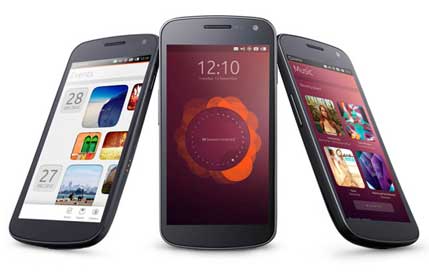Android may well be storming the mobile OS charts, but there are still plenty of Linux software developers intent on fragmenting the ecosystem with their own flavours of Linux for mobile devices. Canonical, the developer behind the popular and user friendly Ubuntu Linux distribution said this week that it has a version of its operating system for smartphones now ready to deploy.
January 3, 2013

Canonical, the developer behind the popular and user-friendly Ubuntu Linux distribution said this week that it has a version of its operating system for smartphones now ready to deploy.
The company said it will be at CES in Las Vegas next week, looking for partnerships with OEMs and carriers. “We have the needs of network operators, OEMs and ODMs in mind in bringing Ubuntu to the phone. It offers great performance on handsets with a low bill of materials, while opening up new opportunities for phone and PC convergence at the top end of the market.” Ubuntu claims 20 million desktop users around the world in over 70 countries and hopes to cash in on its desktop presence when moving into mobile.
Canonical will also be targeting the developer ecosystem. “With all-native core apps and no Java overhead, Ubuntu runs well on entry-level smartphones – yet it uses the same drivers as Android. With one OS for all form factors, one app can have interfaces for phone and desktop – in just one upload to one store,” the company said.
In related news, Android cheerleader Samsung is reported to be working on a smartphone powered by the open source Linux spin off Tizen in collaboration with Japan’s NTT DoCoMo.
Around 12 months ago, telecoms.com learned that Samsung planned to merge its own smartphone operating system, Bada, with the Intel-backed Tizen, but this does not appear to have come to fruition. Instead, DoCoMo is understood to have picked up the development of Tizen for the Japanese market, with help from Samsung.
Tizen was originally an Intel-backed open source platform unveiled in September 2011 to support smartphones, tablets, smart TVs, netbooks, and in-vehicle infotainment devices. The Tizen application programming interfaces are based on HTML5 and other web standards. Tizen-powered devices are expected to be available in Japan this year.
About the Author(s)
You May Also Like








.png?width=300&auto=webp&quality=80&disable=upscale)


_1.jpg?width=300&auto=webp&quality=80&disable=upscale)


.png?width=800&auto=webp&quality=80&disable=upscale)